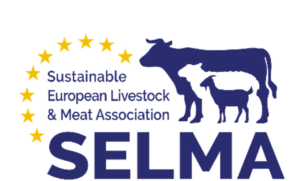European organizations in the livestock-meat sector, including PROVACUNO and INTEROVIC (Spain), INTERBEV (France), FEBEV (Belgium), EDOK (Greece), OI Intercarneitalia (Italy), and PZBM (Poland), have joined together to create the first European association dedicated to the cattle, sheep and goat livestock-meat chain: SELMA, acronym for Sustainable European Livestock & Meat Association. The creation of SELMA marks an important milestone in the sector, where other European countries have already expressed great interest in joining the association.

The main objective of SELMA is to promote unity among stakeholders in the sector, in order to preserve the European model of sustainable production in ruminants. This collaboration aims to collectively represent the interests of the livestock and meat sector before European decision makers on a wide spectrum of issues affecting their operations.
It is imperative to ensure that imported agricultural and agri-food products meet the same rigorous standards and regulations that apply at national and European level.
The creation of SELMA is the result of continuous cooperation between these European associations, which have previously collaborated on various initiatives. This has included submitting joint letters to the European Commission, advocating for measures such as reciprocal trade agreements, reform of the INCO regulation, and the continued promotion of European meats to consumers.
Cohesive European policy
Given that many fundamental decisions relating to the livestock and meat sector are taken in Brussels and not in the individual Member States, it has led the founding Associations to work collectively around common concerns on issues affecting the production and marketing of products derived from ruminants. A notable example of this unity is the call for a cohesive European policy on free trade agreements, which is supported by many European countries.
It is imperative to ensure that imported agricultural and agri-food products meet the same rigorous standards and regulations that apply at national and European level.
In addition, SELMA has identified other critical issues for joint collaboration, including the ongoing trialogue negotiations on the Industrial Emissions Directive, proposed directives on environmental claims and reviews of legislation regulating animal welfare, among others.
The association will embark on its next work program in late 2023, continuing its commitment to promoting sustainable practices and representing the interests of the European livestock and meat industry
















